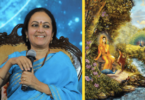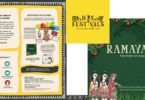Chick-lit is best represented by cult classic Bridget Jones’ Diary by Helen Fielding. The genre consists of books written of women, by women and for women. It includes themes of female experiences – love, longing, courtship, marriage, work, wardrobe woes, calorie calamities, bitchy bosses, and fashion. It differs from the regular women’s fiction in the tone. The tone is catty, chatty and the story is told in a more confiding, personal tone. Humor is a strong point in chick lit. Chick lit does not deal with culturally suppressed women. It is nearer to reality, far away from the likes of Mills and Boon. ‘Almost Single’ by Advaita Kala is a specimen of Indian Chick-Lit.
The theme of Almost Single is quintessentially romantic – ‘the search for the perfect or at least the almost perfect mate’. The chief problem of Aisha and her friend Misha’s life, like that of Jane Austen’s heroines, is the dearth of suitable/marriageable/economical solvent men. Their third friend Anushka is a product of 21st century. As Aisha says ‘She was our poster child for love conquers all’ till she discovered her husband cheating and she turned into a ‘poster child for the newly single community’. In the novel she is busy in ‘make-up sex’ and ‘break-up sex’.
The word ‘spinster’ is almost obsolete. Therefore the title ‘Almost Single’ becomes misleading. It leads you to think that the story is of an about-to-be-divorced woman whereas the story is of an almost-left-single-girl – a 29 year old who is desperately looking for a partner. Lata didi justifies Kala’s point of view when she says to Aisha, “It’s good you’ve waited. You have a job, a life, friends, an identity… you will never be lonely” whereas Lata didi confesses that she is lonely in her ten year old marriage. Aisha realizes that she bemoans her single status with friends but that is just ‘habitual banter.’ ‘I am not discontented or lonely – in fact far from it. I want a wedding, but am I ready for marriage?’ – This is indeed serious analysis.
[color-box color=” customcolorpicker=” rounded=false dropshadow=false]Aisha realizes that she bemoans her single status with friends but that is just ‘habitual banter.’ ‘I am not discontented or lonely – in fact far from it. I want a wedding, but am I ready for marriage?’[/color-box]
Aisha is Bridget Jones in a sari. At 29 she is not supposed to be unmarried. She is trying everything – online dating, matrimonial sites (online spouse-hunting is ‘an electronic swayamvar’), tarot card reading, Shastriji. She has a mother who nags her about her dwindling marriage prospects and in Aisha’s profile mentions that Aisha is ‘large framed.’ Kala is unapologetic about the young urban women’s wanting the best of material pleasures. Aisha is expressive, ‘If I were wearing a Rohit Bal, I would be ecstatic too, no matter whom I was getting engaged to.’ The cover page describes the book as ‘wickedly irreverent’ and asks ‘Is there such a thing as a perfect relationship?’
Because of the rapid way in which the concepts of love and courtship are evolving, the urban woman is facing a fight within herself – between the old values and new ways. Hunting is no more a male prerogative. Aisha’s compulsion is not economic but she hardly has any illusions, hers is ‘only a job’. She knows she cannot use the excuse ‘she’s-really- career- focused’. Thus she waits for that perfect man…. a recurrent motif of women’s fiction.
Sex, booze, boyfriends, virginity, arranged marriage, interfering parents – urban Indian women can relate to all these. Aisha’s gang smokes, drinks, shops, are sexually active, are bona fide Karva Chouthis.They are perceived as a group of hungry piranhas waiting to sink their teeth into any man. Aisha’s mother regards ‘being independent and socially active as a handicap’ because she still believes that ‘boys like fresh girls’. Aisha’s breed knows ‘I don’t need a man to pay my bills, but on some level, I need him to give me his last name’ – so the patriarchal set up will continue! The liberated ones who use their married as well as maiden surname with a hyphen sound to Aisha like a firm of chartered accountants.
[color-box color=” customcolorpicker=” rounded=false dropshadow=false]…the desire to love outweighs the desire to be loved and people move into relationships leading towards emotional bankruptcy…[/color-box]
Aisha analyses (in the chapter ‘Diminished Logical Thinking’) that the desire to love outweighs the desire to be loved and people move into relationships leading towards emotional bankruptcy. Amour becomes a career, a vocation. Women today are in an ambiguous position – they have benefitted from feminism’s push for education and access to the workplace, but they still experience pressures from without and desires from within for romance and family. So they are caught between competing demands to be strong and independent while retaining their feminity. They have moved beyond victim/victimized perceptions but are still groping in the dark as to what they want out of life.
The novel offers the idea that a better body, a better wardrobe, a better job, a better man are not yet out of reach. Urban Indian women can relate to this dream. Aishas may be living in metros but they must be in minority. Mishas and Aishas, for whom ‘cleansing, toning and moisturizing are three steps to Nirvana’, must be present.
An Aisha, who thinks the ‘second sherwani’ guys i.e. newly divorced guys are good husband material because they try harder to make the marriage a success, too will be found. An Aisha who with her gang performs a ‘havan’, having shots of tequila, playing Truth or Dare near the havankund and discovering that previous year the whole group had hooked up with her trophy boyfriend one by one as if he was the “holy Ganges that everyone had to take a dip” and laugh at it, will be difficult to find. An Aisha who is so drunk that she slumps in her host’s bedroom and passes out may have landed in metros. An Aisha who proclaims, “I am a born again virgin and if I gave up the booze and ciggies, I can be up for sainthood” will be an almost scarce product in India. An Aisha who will reach unannounced into the hero’s hotel, take a shower, sip wine and wait in his bedroom in a towel – has she set foot in India?
The author Advaita Kala has “after calling three countries and numerous cities home…finally dropped anchor at New Delhi”. So she has brought western hangovers. She portrays New Delhi as being as hip and urban as New York. At the same time the book never lets the reader forget the Indian realities with pearls like ‘Indian jugadu job’, ‘a couple of taus from his pind’, ‘simple nazar thingy not vashikaran’, a Roshani Ma who owns a Mitsubishi and who admires stilettos, charges Rs. 1,500 for chanting and brushing away nazaaar with her peacock fan and the Hinglish Babas and Shastrijis.
Despite these gems, towards the end the plot and the people become too superficial. The novel is for a niche audience – the urbane urban ones who constitute the Multiplex audience. And the girl-meets-boy will never go out of demand.
Goodreads rating of Almost Single by Advaita Kala:
3.2/5
Be a good Samaritan: If you liked this review, please share it with others. If you did not, share it with us in the comments below. 🙂
We regularly publish original book reviews. Our other book reviews can be read here. Contact us if you are an author/publisher and want us to review your work.
Our affiliates:
If you would like to purchase ‘Almost Single’ by Advaita Kala, you can do so from our affiliates at
Flipkart: Almost Single
Amazon (Paperback): Almost Single
Tell-A-Tale gets a small share of the purchases you make from the affiliate link, helping us bring you the stories you love to read.




